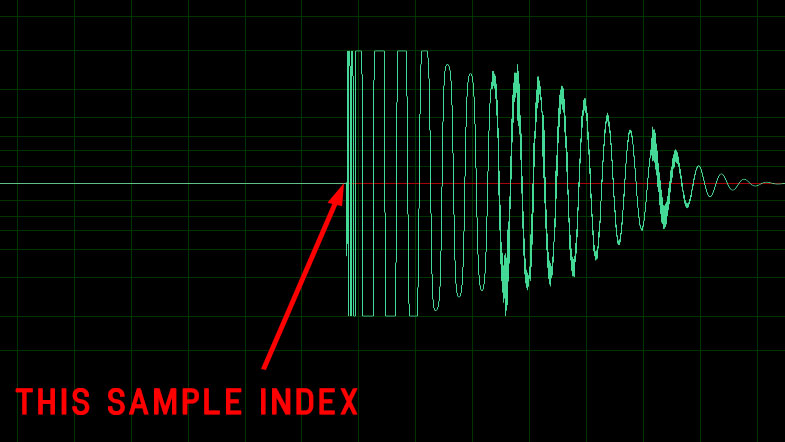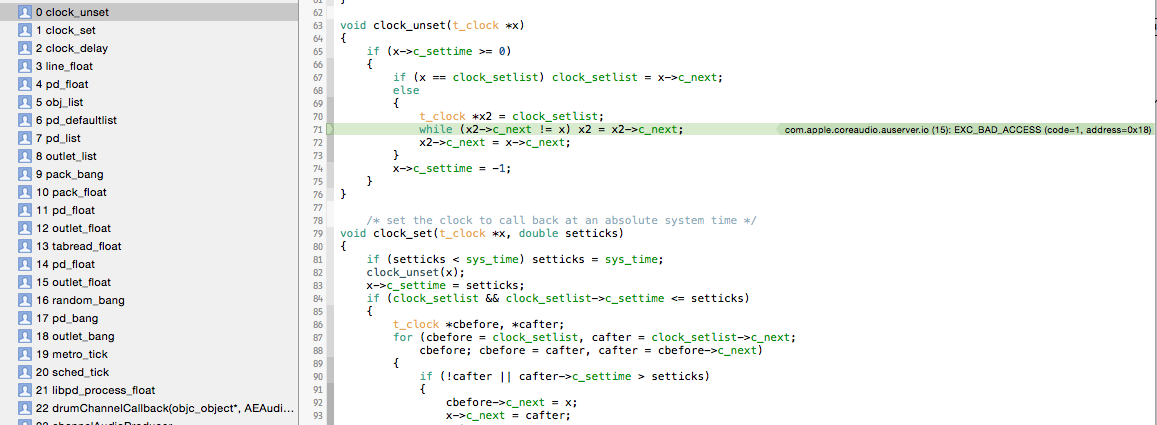-
pascal2000
posted in technical issues • read moreI have worked out a patch to convert my array from 22050HZ to 44100Hz by copying the value to the next index :
new_array[2x] =new_array[2x+1] = old_array[x]
The new array displays correct datas.Unfortunately I have been trying to use this converter patch with libpd and some audio I am recording with an ipad. It failed to work. Somehow the iteration through the audio array jumps some values and I just couldn't figure it out why. I'll try to do the conversion using some Core Audio ressources.
-
-
pascal2000
posted in technical issues • read moreThanks for your reply. This is already a very useful for me. I'll give it a go.
-
-
pascal2000
posted in technical issues • read moreThanks for the answers. I'll try to repeat each sample twice to see how it sounds. Maybe I'll have to do some interpolation. I'll keep the thread informed.
-
pascal2000
posted in technical issues • read moreDoes anyone know if it is possible to open a 22050Hz audio file with [soundfiler] and convert 44100Hz ? Regardless of the current sample rate.
-
pascal2000
posted in technical issues • read moreThanks Gilberto. Following the same technic than yours, it is working. Great!
-
pascal2000
posted in technical issues • read moreSo I am reading my array until there is a non-zero value. It is working although silence is not necessarily a pure 0 value. I had to set a a low value threshold (positive and negative) . So far it is working ;^)
-
pascal2000
posted in technical issues • read moreThanks for the suggestion. Reading the table of course! I'll try that right now.
I had a solution with Bonk~but I found that the result was not precise enough. -
pascal2000
posted in technical issues • read moreHi,
I have an audio file that I read with [tabread~]). The audio starts with some silence and I am trying to find the first non silent sample index.
I have tried to use [bonk~], [fiddle~] or [sigmund~] but the results were approximate and not constants.
Does anyone have a solution for this? Thanks.
Pascal

-
pascal2000
posted in technical issues • read moreAnyone? Am I the only one who is having these clock_unset ?
-
pascal2000
posted in technical issues • read moreHi,
I have a iOS project developed with XCode that uses LibPd to load a Pure Data patch. My project uses a mix of osc~ and phasor~ with modulated parameters (pitch, volume, etc). My app is in 64-bit as now required. I am using the latest version of Pure Data and LibPd.
It crashes in one place. I have an osc~ that has its pitch modulated by an envelope. When I change the value of the length of the envelope (= modulation rate) on a device, it randomly crashes during testing but always on the same line of LibPd code. I thought it had to do with how fast the parameter was changed but no, it also happens when the parameter is slowly changed.
Here is below a (reduced) patch where the problem occurs. I have recently catched up with Pure Data. Any suggestions or corrections are welcome.
Here is a screenshot of the crash in XCode with the code sequence and the line of clock_unset that crashes.

I have done some printing and it crashes here:
void clock_unset(t_clock *x){
if (x->c_settime >= 0){
if (x == clock_setlist) clock_setlist = x->c_next;
else{
t_clock *x2 = clock_setlist;
while (x2->c_next != x) x2 = x2->c_next;
x2->c_next = x->c_next;
}
x->c_settime = -1;
}
}
With a printed value of : x2->c_next==NULLAnyone has experienced something similar?
Thanks.
Pascal
-
pascal2000
posted in technical issues • read moreThanks for the link. I used it and it is now working! No more clicks !
All the best,
Pascal
-
pascal2000
posted in technical issues • read moreHi,
I am making a drum machine. Each track has an oscillator with an amplitude envelope.
My issue is when a sound has a long envelope and the next sound instance starts before the previous one finished. I get an audio click.
Is there any Pure Data technic to handle clicks when 2 sounds overlap? Many thanks.
Best,
Pascal
